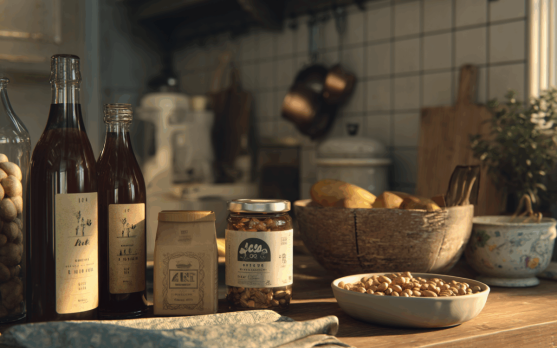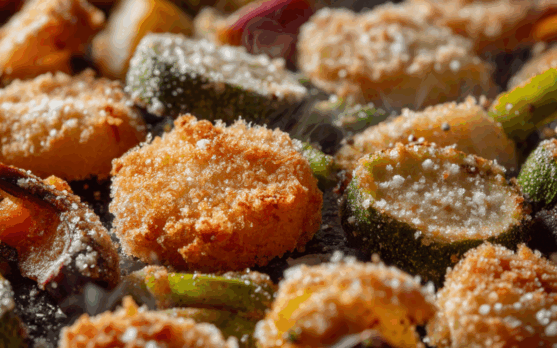"The Rise of No‑Name Icons" — When Private Labels Steal the Show
Remember when store-brand meant “budget”? That’s over. Today’s private-label products are going head-to-head with big names—and winning. In this episode, we look at how minimalist packaging, smart sourcing, and value-first thinking are propelling “no-name” items into consumer cult status.

There was a time when seeing a generic label would trigger an eyebrow raise. “How cheap is this?” people would wonder. But that instinct is fading fast.
Nowadays, private-label products are whispering, not shouting—but people are listening. They’re choosing them not because they’re the only option, but because they’re better. And that’s a story worth unpacking.
Let’s look at how this shift happened.
First, the quality game changed. Supermarket chains stopped treating private label like a fallback. They started investing in sourcing, production, packaging. Suddenly, the peas in the store brand corner had the same origin farms as the national brand. The frozen meal section carried private meals composed by acclaimed chefs. These weren’t knock-offs—they were original creations.
Second, packaging started sending a different message. You’ll spot it: clean, elegant design. Uncluttered labels. Real-looking imagery. A feel of honesty. No screaming ‘we’re cheap’. Instead, they look intentionally unbranded, like carefully selected essentials.
Third, pricing became persuasive—but not penny-pinching. Private label brands learned to walk that line: offering strong value, yes, but without cheapening the experience. They teased the same margins and flavors for less—while telling buyers: “You get more, but we won’t compromise.”
Then came transparency. Some retailers began revealing origin details. Ingredient lists that go beyond the legal minimum. QR codes that actually lead to stories. You could scan and discover how your pasta was made, where it was milled, why the packaging choice mattered. Suddenly, those odd generic labels weren’t so odd—they were open books.
Now, the result is fascinating. People are posting reviews of “store-brand yogurt that tastes better than the brand name.” They’re sharing photos of minimal packaging that still looks premium. They’re excited to be “in the know” about a hidden gem. That cultural shift—no longer seeking out brands, but discovering them—is a major change in consumer mindset.
At the same time, big brands noticed the momentum. Some launched minimalist lines of their own. Others started rainy-day ads focused on substance, not name. But in many cases, the advantage remains with private label—because they can move fast, adapt recipes, align closely with shopper feedback, all without brand overhead.
Let’s not forget data. Supermarkets track what sells better. They see which items move faster and which stalls. They adjust quickly. That means private labels can innovate in real-time. Add a spice here. Change packaging tone there. Make a seasonal line in a week. That kind of agility was unthinkable in the branded world—at least not at scale.
What’s powerful is how this shift plays out culturally. It’s not just about price. It’s about story. Control. Choice. Consumers feel savvy. They feel cared for. They feel like they discovered something real. That emotional connection? That’s what brand builders crave—but private labels often get it first now.
And yes, there’s one more piece. Trust. When you buy a private-label frozen dinner, you’re trusting the retailer: “I shop here, I know your standards.” That trust is transferable. It becomes loyalty, even advocacy. “Sure, I shop big brand sometimes—but you know what? This one’s perfect.” That sentiment used to be rare. Now it’s common.
This wave reflects a bigger truth: consumers value intelligent value over logo prestige. They want confidence, not flash. They want substance, not silly claims. And when private labels deliver, they rise. Fast.
So what does this mean for the food world? It means less fear of anonymity, more respect for intention. It means store brands are not weaker—they’re smarter. And it means that if your private-label lines aren’t built on real insight—functionality, quality, clarity—you’re missing out.
Part of the series: GLOBAL CONSUMPTION — The 7 Waves
Explore the full editorial journey through seven powerful shifts redefining how we eat, shop, and connect.
Conclusion
Private labels aren’t just surviving—they’re excelling. They’re winning hearts by earning trust, not begging for attention. As they embrace clarity, quality, agility, and value, they’re rewriting the rules. And consumers are all in.
Essential Insights
When private labels focus on excellence—ingredients, design, transparency—they transcend anonymity and become icons. The smartest brands today are those without names.




